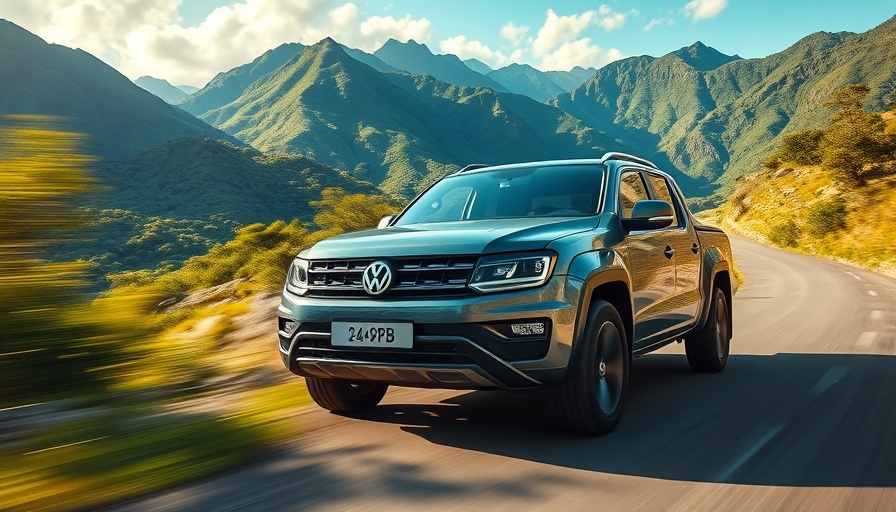
Volkswagen's Ambitious Future in South America
Volkswagen is embarking on an exciting new chapter in its history, with a substantial $580 million investment in Argentina set to transform the automotive landscape in South America. This investment heralds the launch of an all-new mid-size pick-up truck, a successor to the Amarok, designed specifically with local needs in mind. Slated for production at the Pacheco plant in Argentina starting in 2027, this model represents a significant step in Volkswagen's goal to become the global technology leader among volume manufacturers by 2030.
Tailored for Regional Demands
As automakers strive to cater to specific markets, Volkswagen's strategy of developing and producing vehicles locally is noteworthy. CEO Thomas Schäfer emphasizes the importance of regional growth and localization, stating, "This investment strengthens our position in a region that is strategically important for the Volkswagen brand." The new Amarok will be meticulously aligned with the requirements of the South American customers, ensuring a product that resonates with local preferences in performance and innovation.
A Historic Commitment to Argentina
Marcellus Puig, President and CEO of Volkswagen Argentina, echoes the sentiment regarding the Amarok's significance in their history, noting its past success with over 770,000 units produced. This renewed commitment to the Pacheco site will see upgrades in production technology and digital optimization, leading to enhanced energy efficiency. This evolution not only marks progress for the Amarok but also reaffirms Volkswagen's confidence in Argentina's industrial capabilities.
Aligning Workforce and Technology
Investing in workforce stability and technological advancement, Volkswagen's 'Zukunft Volkswagen' initiative aims to create a sustainable balance between economic stability and innovation. By 2024, binding targets will be in place, encompassing growth in employment and advancements in technology. This multi-faceted approach is essential in navigating an increasingly competitive automotive sector, especially in regions like South America, where buyer preferences can vary significantly.
Understanding the Changing Market Dynamics
The launch of Volkswagen's new Amarok is not just about introducing a new vehicle; it's about understanding the evolving landscape of consumer preferences in auto sales. Dealership owners and general managers need to consider how localized products can enhance their offerings. Having vehicles tailored for specific markets increases sales potential and enhances customer satisfaction. A solid understanding of what consumers want in terms of features, sustainability, and technology will be critical.
Fueling Sales Training Insights
For dealerships, the introduction of localized models such as the new Amarok means rethinking training programs for sales staff. Auto salesman training that emphasizes the unique aspects of each model, particularly in a culturally diverse market like South America, can lead to better customer engagement and higher conversion rates. In emphasizing aspects such as performance, innovation, and sustainability, dealerships can leverage specific selling points that resonate with local audiences.
With a combination of historical significance and future-focused strategies, Volkswagen's new Amarok is poised to redefine the auto market in South America. As dealerships adapt to these regional shifts, they can capitalize on Volkswagen's initiatives, creating more tailored approaches in their sales methodologies.
 Add Row
Add Row  Add
Add 




Write A Comment